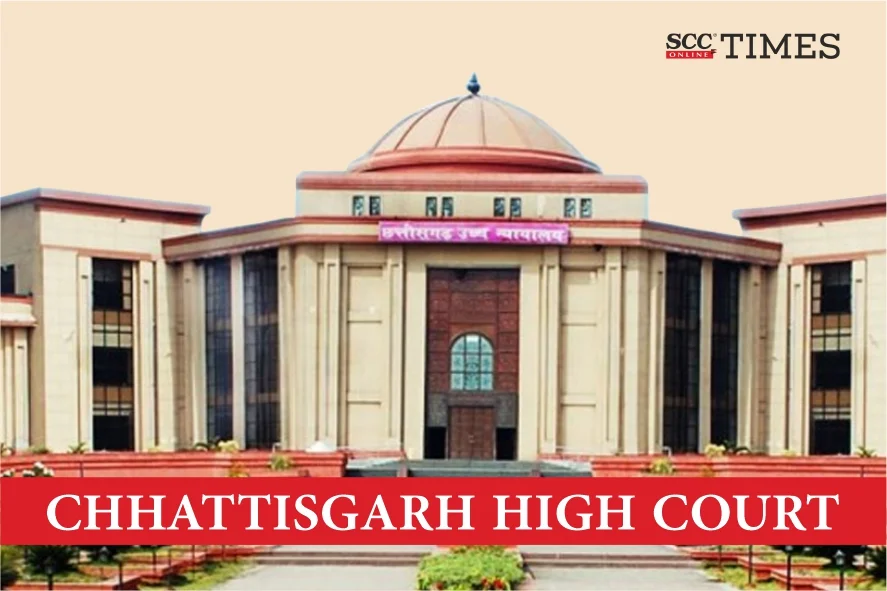Chhattisgarh High Court: The Division Bench of Ramesh Sinha, CJ and Ravindra Kumar Agrawal, J opined that the paradigm of reformative punishment did not support the traditional inhuman jails with bars but was more liberal and supported the concept of open prisons, based on trust with minimum security. The Court opined that an open jail provided a congenial atmosphere helping the offender to socialize even before he was released from the jail. Further, there were quite good number of skilled professionals as prisoners whose services might be utilized and in turn, they might also earn something for their future. Thus, the Court registered the present PIL suo motu to explore the possibilities regarding implementation of concept of open jail and whether the same would be feasible in the State of Chhattisgarh or not.
In the present case, the Court noted that Mr. X’s daughter and his parents had written various letters stating that, Mr. X was a convict and confined in jail since 2010, regarding an offence under Section 302 of the Penal Code, 1860 and his appeal was pending before this Court since 2014. However, on perusal of records it transpired that the said criminal appeal was dismissed on 21-04-2023, affirming the Trial Court’s order. It was further stated in the letters that because of confinement of the sole bread earner, they were living a life in misery.
Thereafter, pursuant to the aforesaid letters, data were collected from Central Jails and District Jails situated in the State of Chhattisgarh. Thereafter, the compilation was prepared which showed that there were 82 children living with female prisoners in jail. Further, there were 340 convicts who had been convicted for more than 20 years of imprisonment and their appeals was dismissed by the Supreme Court. The data also stated that the total capacity of jails was 15,485 against which 19,476 prisoners were confined and a total number of 1,843 prisoners were skilled professionals, 504 were senior citizens and 4 prisoners had tried to escape the jail. The Court opined that this report showed that the number of prisoners confined in jails was much higher than its actual capacity.
The Court noted that there were 340 convicts who had been sentenced to undergo imprisonment for more than 20 years and their appeals have also been dismissed by the Supreme Court and opined that what would be the plight of those inmates who had to remain in confinement for such long period of time could be easily understood. The Court opined that when a criminal/offender was confined in jail, and the said offender was also the sole bread earner of the family, the entire family suffered along with the offender. After undergoing long period of incarceration, when the prisoner was released at the fag end of his life, he was unable to sustain himself and his family in any manner, it was the State’s duty to explore all the possibilities which might help an inmate to lead a normal life of a law-abiding citizen after his release.
The Court opined that the paradigm of reformative punishment did not support the traditional inhuman jails with bars but was more liberal and supported the concept of open prisons, based on trust with minimum security. The concept of open jail was not new in India, as the State of Rajasthan, Maharashtra and Himachal Pradesh had the maximum number of active open prisons. The Court opined that an open jail provided a congenial atmosphere helping the offender to socialize even before he was released from the jail. Further, there were quite good number of skilled professionals as prisoners whose services might be utilized and in turn, they might also earn something for their future.
Thus, the Court registered the present PIL suo motu to explore the possibilities regarding implementation of concept of open jail and whether the same would be feasible in the State of Chhattisgarh or not.
The matter would next be listed on 15-04-2024.
[Suo Moto v. State of Chhattisgarh, 2024 SCC OnLine Chh 1490, Order dated 11-03-2024]







